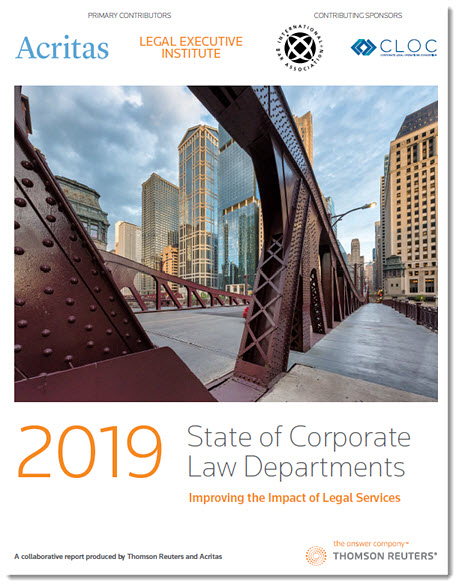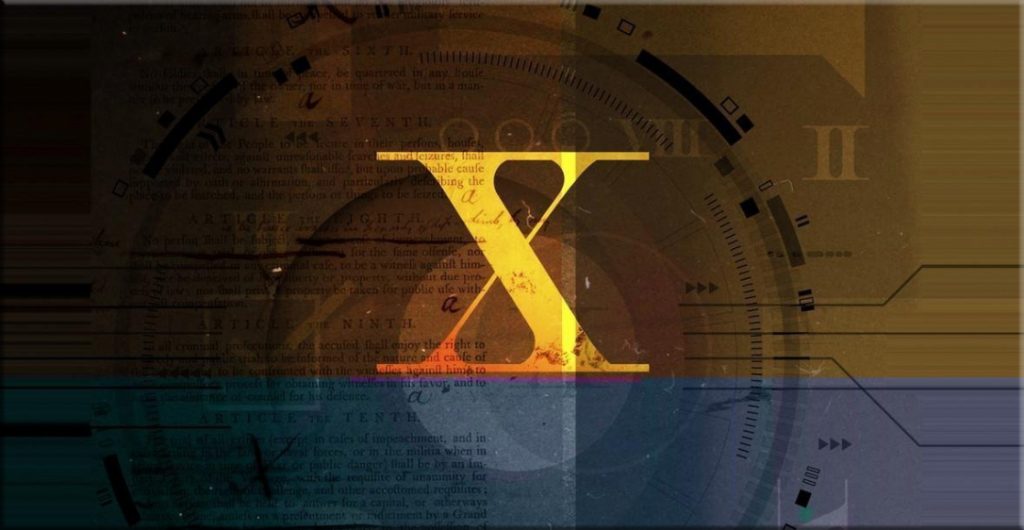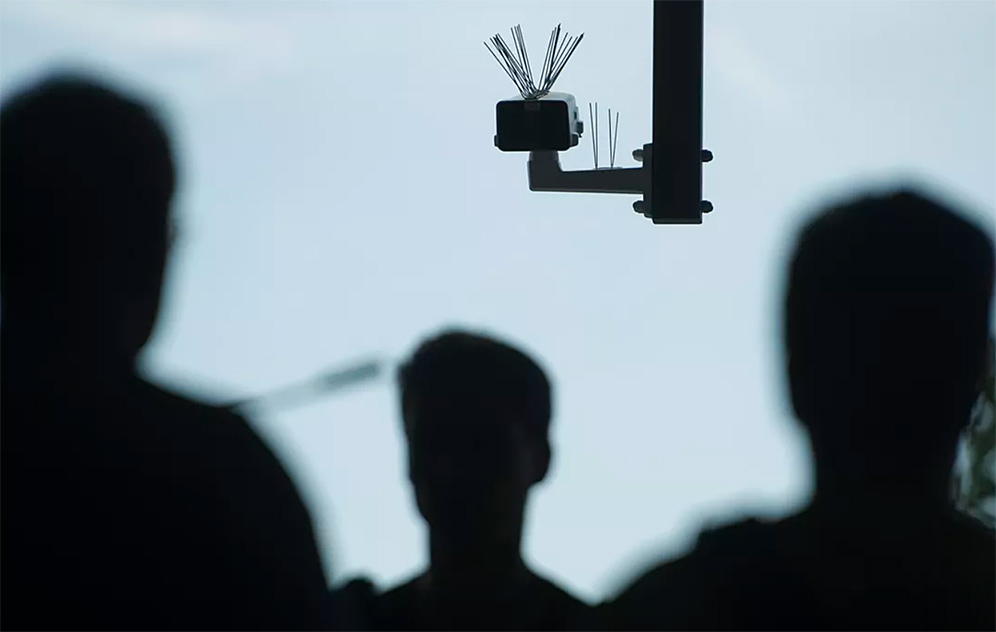2019 State of Corporate Law Departments Report — from Thomson Reuters Legal Executive Institute, the International Bar Association (IBA), the Corporate Legal Operations Consortium (CLOC), and UK-based legal research firm Acritas

Because many corporate law departments are faced with dynamic and wide-ranging problems, the solutions require a highly diverse set of skills and capabilities. Teams of lawyers alone are no longer enough to solve all problems in optimal ways. That’s why law departments must provide legal support to corporations that not only enables them to maximize their competitive advantage, but also safeguards the organization against unnecessary risk.
The State of Corporate Law Departments 2019 — a new report that was recently published by Thomson Reuters Legal Executive Institute, the International Bar Association (IBA), the Corporate Legal Operations Consortium (CLOC), and UK-based legal research firm Acritas — examines the landscape for corporate law departments and explains that in order to maximize the value of legal services being delivered, corporate law departments must make their best efforts to improve the impact of those legal services while at the same time reducing the cost of those services.
Excerpts (emphasis DSC):
However, this report suggests that in order to maximize the value delivered, it’s time to pay as much attention to improving the impact of legal services the corporate law departments are delivering as it is to reducing the cost of those services.
Indeed, today’s legal problems are dynamic and wide-ranging, and the solutions require a highly diverse set of skills and capabilities. Teams of lawyers alone are no longer enough to solve problems in optimal ways. All types of professional need to work together collaboratively, often from different organizations, and they need the support of modern working processes and systems.
Innovative law departments and innovative law firms score significantly higher across all key performance areas, including the ultimate measures of quality and value.
Innovation incorporates a whole host of different areas, such as embracing legal technologies, utilizing expert professionals holistically with lawyers, overhauling work processes and pricing models, and building collaborative partnerships between in-house teams and their outside law firms and alternative legal services suppliers.
To that end, the report identified a number of key levers that corporate law departments can use to create a higher performing legal function and enhance the impact that their departments makes on the overall success of the organization.
…
The solution to this challenge reinforces the key findings of this report as a whole — the need to tap into a diverse range of skills beyond legal expertise, to access new technologies, and to report on the progress made.














